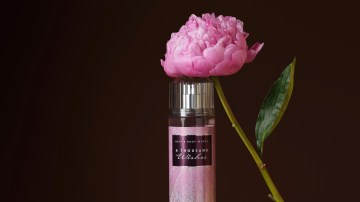Skinfix, the 11-year-old “clean-ical” skin-care brand known for its derm-approved moisturizers and serums, reformulated its bestselling product last year.
Triple Lipid-Peptide Cream is a $54 moisturizer made from buzzy ingredients like ceramides and peptides. It’s clinically-priven to deliver smoother, firmer, more hydrated skin after four weeks and is thought of as one of the most effective products for dry skin across the beauty industry. It has racked up several awards by publications including “Allure” and “Good Housekeeping,” and has become a cult favorite product since its launch in 2015.
“[There was] a desire to make something great even better,” CEO Stuart Leitch told Glossy. “There was also some belief in the equity of including a proprietary compound that we have, which is called B-L3, in an award-winning, podium-finishing moisturizer.”
The new and improved formula went through Skinfix’s intense formulation process, which includes rigorous clinical testing, before launching last year. “All of the testing was done, and all the indicators said it was a formula that was preferred to the existing one that we had,” Leitch said.
The formula’s main new addition, Skinfix’s B-L3, is a patented lipid complex said to improve the skin’s moisture barrier. “You can think about it as a supercharged, highly-active complex of ingredients already in many of our products,” he said.
The new product launched in February of 2024. While some consumers preferred it over the original, most of the longtime fans hated the new version. On Reddit, consumers called the new version greasy and said it pilled under makeup. Others said it irritated their skin.
“I don’t have particularly sensitive skin but after I use the new version I’m always left with a stinging sensation like I just applied an exfoliant,” said one commenter. “If they change the formula back I will 100% buy it again because it was amazing, but I probably won’t buy it again otherwise.”
Other Reddit users shared their frustration. “The OG formula was my holy grail for years,” said one person. Another wrote, “Do you happen to know what changed in the formula? I need the old version back.”
Others simply missed the original, even if they couldn’t explain why. “There is a noticeable difference to me which has made me reach for it less,” said another person. Another questioned their loyalty: “I’m running out of my last tub and not sure if I should shell out the money for a new one anymore.”
“For a lot of our loyalists, the people who came back month after month buying this product, we sort of broke their trust by changing it,” Leitch said. “I think there was a deep emotional connection to what they loved, what worked for them.”
Between discourse on social media and emails and DMs from loyalists, the team immediately knew they’d made a misstep and began to study feedback and sales. Within three months, the team was planning a rollback and rebrand to match.
Founder Amy Gordinier launched Skinfix in 2014 and stepped down from her role as CEO in September of last year, seven months after the rebrand launch. Leitch took over, fresh off his role as chief revenue officer of Olaplex and after more than a decade with L’Oréal Group, most recently as president of Lancôme USA.
Leitch told Glossy that his hiring, and Gordinier stepping down, was not a result of the reformulation flub. Gordinier remains an active part of the business as its founder.
Skinfix is privately held. Its lead investor is Stride Consumer Partners, which also has stakes in Patrick Ta, Odele, DryBar and First Aide Beauty.
Leitch describes this new era of the company as “getting back to basics” and rethinking how it uses consumer feedback. “I don’t want to use the word betray, but it felt like we made a decision without [our community],” he said. “There’s so much overload for consumers now that you don’t need to do a lot for them to seek out some type of alternative.”
This isn’t the first time a beauty brand has walked back a reformulation. In 2024, Glossier brought back its original Balm Dot Com after reformulating it to be vegan. While the change leaned into many consumers’ vegan values, an outcry from loyalists inspired Glossier to add the animal products back into the formula, including lanolin and beeswax.
In a certain light, Glossier and Skinfix got lucky: Returning to their OG formulations, albeit an expensive endeavor, was possible. Brands like Givenchy and Biologique Recherche have received similar consumer outcry over the past year for reformulating bestselling Prisme Libre Powder and Lotion P50, respectively.
The former was changed to remove talc, which is often contaminated with asbestos, while the latter was changed to remove phenol, an ingredient that was recently banned stateside.
On Friday, Skinfix is executing a “hard reset” of its Triple Lipid-Peptide Cream, both through DTC and at Sephora, and rolling out a full line rebrand to punctuate the change. Leitch declined to share the financial burden of the change.
Any leftover product will be recycled through Pact Collective through Sephora. “[Sephora] was really happy that we [brought back the original],” Leitch said. “They push us to be focused on our consumer.”
Using a robust educational campaign on social media, as well as direct communication through email and SMS, loyalists and followers will hear about change in the coming days.
“The risks today are that brands like us can focus on what we want to do, [especially] when we come across cool ingredients [or technology we want to use],” he said. “Sometimes that happens at the expense of truly listening to what consumers want.”




